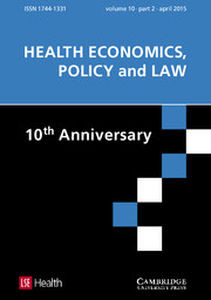By Paul McCrone
“Most mental health problems are formally identified according to an assessment of clinical symptoms, rather than by taking blood tests, scans, etc. As such, particular care in arriving at a diagnosis is required if these or similar symptoms can to some extent occur in the general population. Such symptoms may of course be influenced by societal factors, which would be less likely with physical health problems and it is probably safe to say that we have now reached a consensus that genes, personal circumstances and the environment each play a part in the manifestation of most psychiatric disorders. Stephen Hinshaw and Richard Scheffler in The ADHD Explosion focus on the contentious issues surrounding this particular condition, particularly those to do with recognition and treatment.
Attention-deficit hyperactivity disorder (ADHD) is clearly a controversial concept and this book does not shy away from the controversy. It is written by a psychologist (Hinshaw) and an economist (Scheffler) – on the face of it very different disciplines, but it can be argued that they are closer than we might think (Rabin, 1998). Although the debate about the existence, nature and treatment of ADHD can polarise people, this book does state as an intention its desire to strike a balance. However, even in the early pages it is apparent that much of the material will be contested. A major theme running through the book is the extent to which ADHD has been noticed because of the education system leading “children … to attend school and perform tasks that human brains and minds never evolved to do, like learning to read”. Whether engaging in formal education flies in the face of evolutionary progress and thereby results in the emergence of attention problems is certainly a hypothesis worthy of testing and a key question is therefore whether this book goes on to achieve that. The book is accessible and nicely presented with a mixture of case studies and empirical data. It does not claim to show whether ADHD is indeed a ‘real’ problem – by default it assumes it is and also suggests that it causes clear personal and societal suffering. There is a hint at the outset that the book will address issues such as whether treatment for ADHD could be rolled out to the wider population in order to enhance well-being. Such an extension of treatment is of course controversial, particularly as the mainstay one is the use of stimulants. There are parallels elsewhere, for example, mindfulness therapy (a brief intervention with roots in Buddhism that is helpful for depression) is used by many without recognised clinical problems. If the main purpose is to prevent full-blown ADHD then that is rather different to attention enhancement for those not at risk, which is more acceptable is open to debate.”
To read more, access Health Economics, Policy and Law / FirstView Article / April 2015, pp 1 – 5

